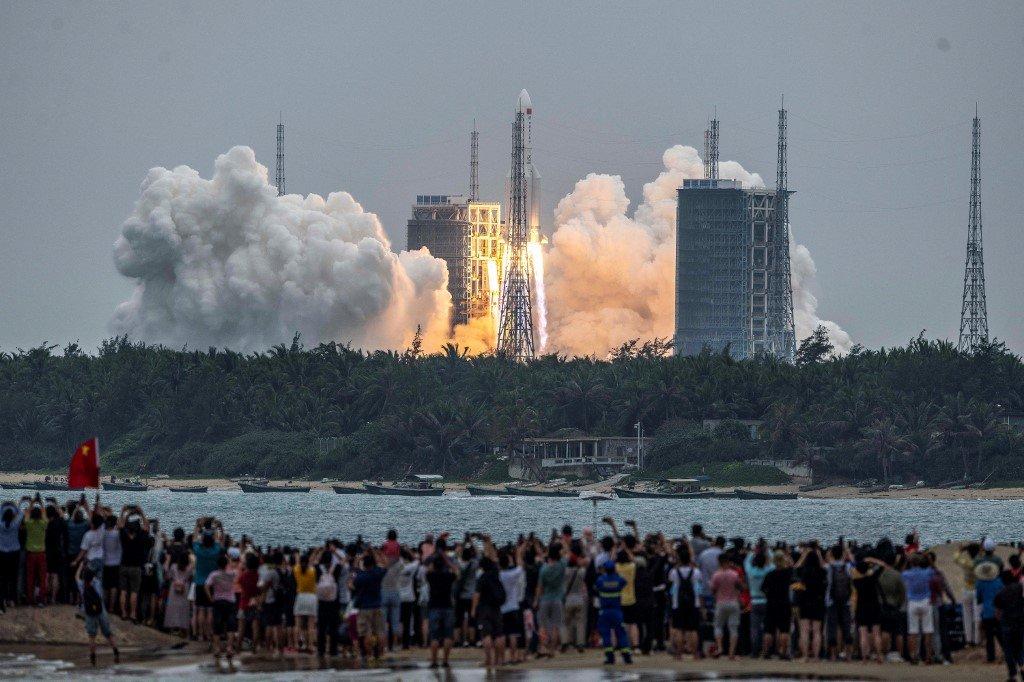Uncontrolled Chinese rocket burns up, debris crashes into ocean
China has bridled at the suggestion that it has been negligent in allowing the uncontrolled return of so large an object.
Just In
The remains of a Chinese rocket that was hurtling back towards Earth crashed into the Indian Ocean near the Maldives on Sunday, China’s space agency says.
The bulk of the rocket was burnt up and destroyed as it entered the atmosphere, the BBC reported.
The monitoring service Space-Track, which uses US military data, said the rocket was recorded above Saudi Arabia before it fell into the Indian Ocean just west of the Maldives.
The uncontrolled return of the rocket led to criticism from the US amid fears that it could land in an inhabited area. US and European websites tracked its return, and there was much speculation on social media about where the debris might land.
“Spacefaring nations must minimise the risks to people and property on Earth,” US Defence Secretary Lloyd Austin said in a statement. “It is clear that China is failing to meet responsible standards regarding their space debris.”
Space experts, however, predicted that the chances of anyone being hit were exceedingly small, not least because so much of the Earth’s surface is covered by ocean and huge areas of land are uninhabited.
Various space debris modelling experts predicted that most of the vehicle would burn up during its final plunge through the atmosphere, although there was always the possibility that metals with high melting points and other resistant materials could survive and end up back on land.
When a similar core stage returned to Earth a year ago, piping assumed to be from the rocket was identified on the ground in Ivory Coast in West Africa.
China has bridled at the suggestion that it has been negligent in allowing the uncontrolled return of so large an object.
Commentary in the country’s media had described Western reports about the potential hazards involved as “hype” and predicted the debris would fall somewhere in international waters.
“It makes the Chinese rocket designers look lazy that they didn’t address this,” Harvard-based astrophysicist Jonathan McDowell said of the uncontrolled re-entry.
“It is common practice across the world for upper stages of rockets to burn up while re-entering the atmosphere,” said Wang Wenbin, a spokesman at the Chinese foreign ministry.
The rocket launched April 29, carrying with it the first module of China’s future space station.
Subscribe to our newsletter
To be updated with all the latest news and analyses daily.
